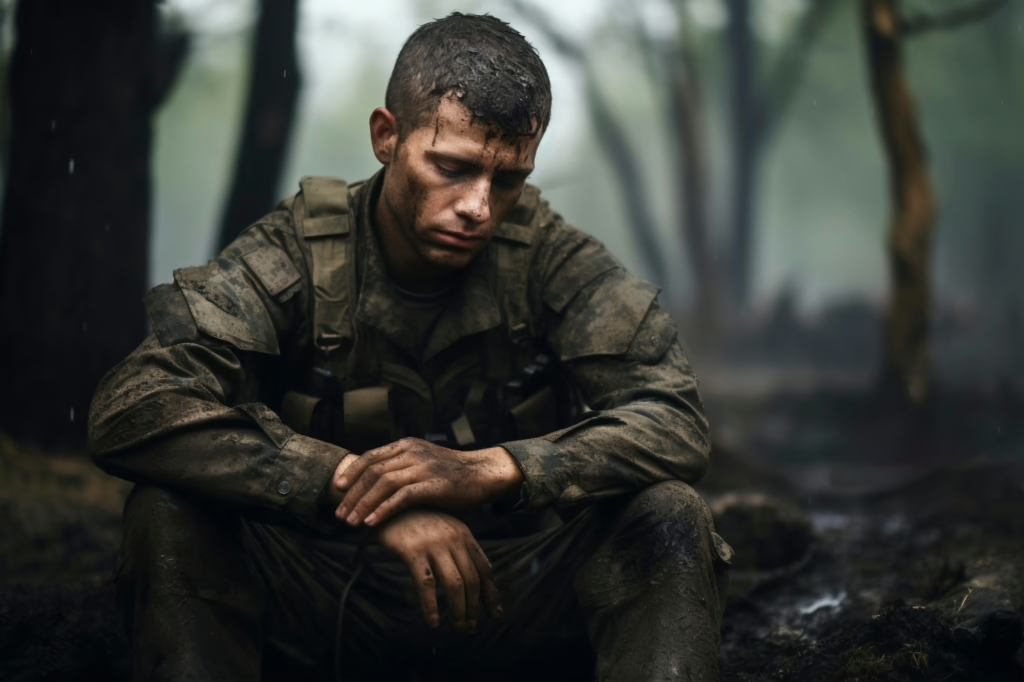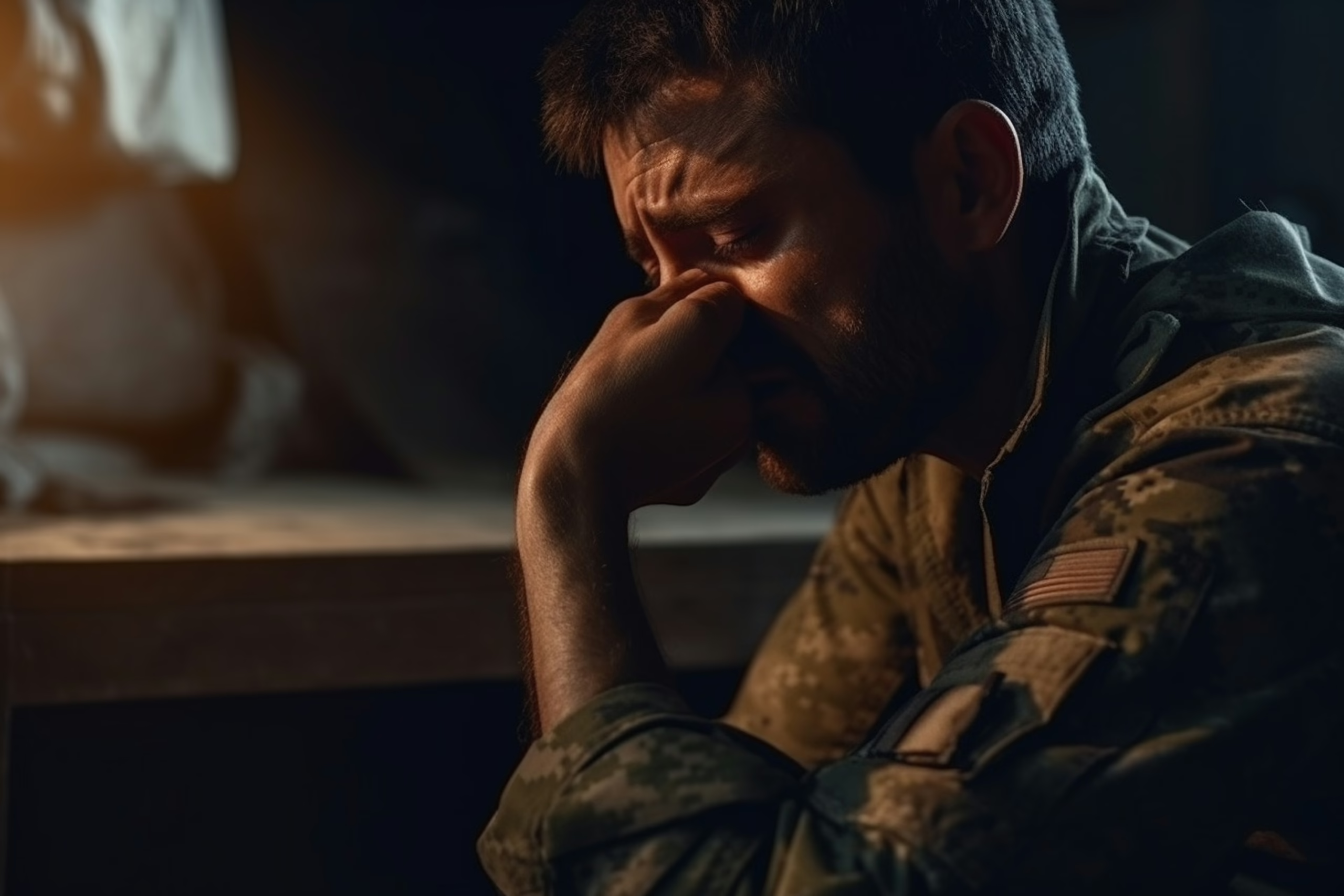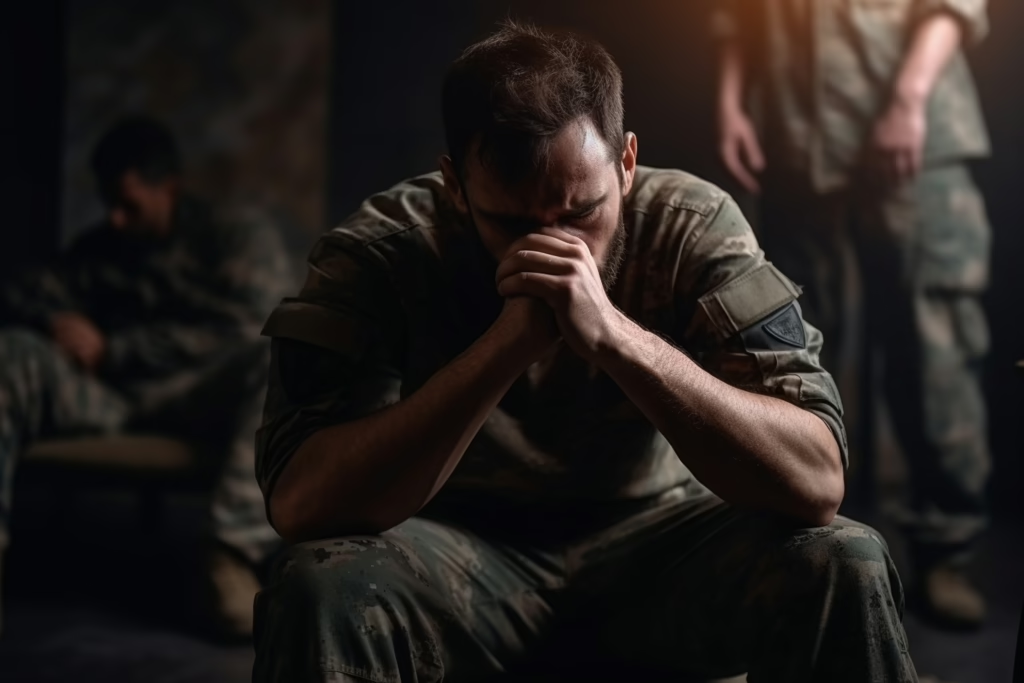“Strange Meeting” is a visionary anti-war poem composed by Wilfred Owen in 1918 and published posthumously in 1920. It presents a surreal encounter between two dead soldiers—once enemies—who now meet in a shadowy afterlife. Through this imagined dialogue, Owen offers one of the most poignant critiques of war in modern literature. This line-by-line analysis explores how Owen employs vivid imagery, psychological depth, irony, and classical allusions to reveal the shared suffering and futility of war.

Line-by-Line Explanation and Analysis
Lines 1–3
It seemed that out of battle I escaped
Down some profound dull tunnel, long since scooped
Through granites which titanic wars had groined.
The speaker begins with a surreal, dream-like tone. The escape from battle may signify death or a spiritual transition.
- Profound dull tunnel evokes the imagery of a grave, trench, or descent into Hades (classical underworld).
- Titanic wars suggests enormous, destructive past wars—not only World War I, but the eternal human history of conflict.
- The verb groined (from Gothic architecture) reflects how war has reshaped even the bedrock of the Earth—battles carving their legacy into time and space.
Lines 4–5
Yet also there encumbered sleepers groaned,
Too fast in thought or death to be bestirred.
These “sleepers” are the dead—buried soldiers, spiritually trapped.
- Encumbered implies physical or emotional weight—perhaps the trauma they carry.
- Too fast (i.e., too deep) in thought or death reflects the psychological stillness of those overwhelmed by suffering or resigned to their fate.
Lines 6–9
Then, as I probed them, one sprang up, and stared
With piteous recognition in fixed eyes,
Lifting distressful hands, as if to bless.
And by his smile, I knew that sullen hall,—
The speaker makes contact—probes—suggesting both physical and emotional curiosity.
- One of the dead stirs with piteous recognition—not anger, but grief and connection.
- His distressful hands…as if to bless show a gesture of sorrowful forgiveness.
- The sullen hall implies the underworld—a solemn, deathly realm. This is not hellfire, but a mournful, psychological hell.
Line 10
By his dead smile I knew we stood in Hell.
The oxymoron dead smile heightens the eerie mood.
- Hell is metaphorical: not punishment by God, but the human-made suffering of war, where enemies recognize each other as victims.
Lines 11–13
With a thousand fears that vision’s face was grained;
Yet no blood reached there from the upper ground,
And no guns thumped, or down the flues made moan.
- The stranger’s face was grained (etched) with suffering—memories of death and war.
- No physical harm happens here—no blood, no guns—suggesting a psychological space beyond violence, where only reflection remains.
Line 14
“Strange friend,” I said, “here is no cause to mourn.”
This “strange friend” is an ironic oxymoron: enemy turned comrade in death.
- The speaker assumes that death has brought peace, but the response reveals otherwise.
Lines 15–16
“None,” said that other, “save the undone years,
The hopelessness.”
The true tragedy, the German soldier replies, lies not in death but in the “undone years”—the lives, relationships, and dreams left unfulfilled.
- Hopelessness marks a spiritual death beyond physical demise.
Lines 17–19
Whatever hope is yours,
Was my life also; I went hunting wild
After the wildest beauty in the world,
- He equates himself with the speaker: both shared similar human hopes and dreams.
- Hunting wild suggests idealism—perhaps art, youth, beauty, or freedom, now destroyed by war.
Lines 20–21
Which lies not calm in eyes, or braided hair,
But mocks the steady running of the hour,
- He dismisses conventional beauty (romantic or feminine)—beauty lies beyond appearances.
- Time (the hour) is mocked by beauty’s intensity—perhaps a reflection on fleeting youth and love.
Line 22
And if it grieves, grieves richlier than here.
- Even sorrow in life is more rich, meaningful, than this dead emptiness. A contrast between spiritual life and spiritual numbness.
Lines 23–26
For by my glee might many men have laughed,
And of my weeping something had been left,
Which must die now. I mean the truth untold,
The pity of war, the pity war distilled.
- The dead soldier mourns the loss of his emotional legacy—his laughter and sorrow could have touched others.
- The truth untold is Owen’s mission: to show the pity of war.
- Pity war distilled suggests that war strips life of everything but suffering.
Lines 27–28
Now men will go content with what we spoiled.
Or, discontent, boil bloody, and be spilled.
- Society may accept the false glories of war (content) or erupt into future violence (boil bloody).
- Either way, the legacy of truth is lost.
Line 29
They will be swift with swiftness of the tigress.
- A metaphor for the aggressive, reactive nature of future warfare.
- Evokes violent instinct, not reason or reflection.
Line 30
None will break ranks, though nations trek from progress.
- Obedience to nationalism and authority persists, even as humanity regresses (trek from progress).
- This is Owen’s bleak vision of political and moral stagnation.
Lines 31–32
Courage was mine, and I had mystery;
Wisdom was mine, and I had mastery:
- The dead soldier possessed not only bravery but depth (mystery), wisdom, and skill.
- These were wasted in war.
Lines 33–34
To miss the march of this retreating world
Into vain citadels that are not walled.
- He missed the retreating world—a powerful image of civilization regressing into vain ideals and delusions.
- Citadels that are not walled suggest false fortresses—illusory goals or ideologies.
Lines 35–36
Then, when much blood had clogged their chariot-wheels,
I would go up and wash them from sweet wells,
- An allusion to classical war chariots (chariot-wheels), clogged with blood—symbolizing mass slaughter.
- The soldier wishes he could cleanse this horror with water from sweet wells—truth, innocence, purity.
Line 37
Even with truths that lie too deep for taint.
- Some truths, he says, are beyond corruption—pure insights that war silences.
- Owen elevates his role to that of a prophet or healer.
Line 38–39
I would have poured my spirit without stint
But not through wounds; not on the cess of war.
- He would have given his passion to humanity generously (without stint), but not through the cess (filth) of war.
- Powerful rejection of violence as a means of expression or sacrifice.
Line 40
Foreheads of men have bled where no wounds were.
- One of Owen’s most famous lines.
- Refers to psychological trauma—mental scars, shell shock, unseen suffering.
- A critique of how war damages the soul.
Lines 41–42
“I am the enemy you killed, my friend.
I knew you in this dark: for so you frowned
- The central revelation: the dead man is the enemy the speaker killed.
- But my friend adds tragic irony.
- I knew you…you frowned links the moment of death with this posthumous meeting—recognition transcends conflict.
Lines 43–44
Yesterday through me as you jabbed and killed.
I parried; but my hands were loath and cold.
- A vivid recollection of the fatal encounter.
- Loath and cold shows both reluctance and helplessness—he tried to defend himself but had no will left.
- Suggests that even combatants do not fully will the violence they commit.
Line 45
Let us sleep now…
- The closing line is tender, mournful, and ambiguous.
- Sleep implies death, peace, or final surrender—not just of life, but of pain, guilt, and memory.
- The ellipsis reinforces the fading voice and dreamlike tone.

Conclusion
In “Strange Meeting,” Wilfred Owen crafts a masterful, introspective critique of war through an imagined dialogue between two dead soldiers. The poem is filled with paradox, rich imagery, classical allusions, and moral insight. Enemies become friends; death brings truth; and violence reveals futility. Owen’s haunting line, “Foreheads of men have bled where no wounds were,” encapsulates his core message—that war wounds the mind and soul far more deeply than the flesh.
This is not only a poem of war, but a poem of memory, mourning, and moral awakening—a timeless literary monument to lost youth and the human cost of conflict.


